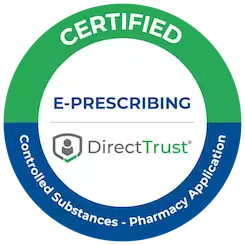In today’s healthcare landscape, long-term care (LTC) facilities face numerous challenges, including managing complex medication regimens for their residents and ensuring medication safety. This is where LTC pharmacy services play a vital role in improving the quality of care and overall healthcare experience for patients in nursing homes and assisted living facilities. This comprehensive guide will discuss the various pharmacy services that are essential for long-term care and how they can help your LTC facility provide optimal patient care.
LTC Pharmacies: A Focused Approach to Medication Management
Long-term care pharmacies are dedicated to serving the unique needs of residents in nursing homes, assisted living facilities, and other long-term care settings. Unlike retail pharmacies, LTC pharmacies are not open to the public and do not offer a variety of non-prescription items for sale. Instead, they focus on providing efficient and cost-effective pharmaceutical solutions specifically tailored to the needs of long-term care patients. Some of the key benefits of partnering with an LTC pharmacy include:
Patient Status Monitoring
LTC pharmacists are heavily involved in monitoring the health status of patients in long-term care facilities. Their ‘closed door’ design allows them to concentrate on a specific group of patients, enabling them to develop a comprehensive understanding of each patient’s medication needs. By fulfilling all of the patient’s medication requirements, LTC pharmacists can closely monitor patient status and be alert to any changes. This close monitoring helps improve patient outcomes and ensure medication safety.
Monthly Drug Regimen Reviews
LTC pharmacies play a crucial role in conducting monthly drug regimen reviews for patients in long-term care facilities. These reviews are mandated by the Centers for Medicare and Medicaid Services for all residents enrolled in Medicare or Medicaid plans. The reviews involve evaluating over-the-counter and prescription medications to minimize adverse side effects, lower the risks associated with medication, and identify and prevent any medication-related issues. By performing these reviews, LTC pharmacies can improve patient care and prevent potential complications.
Compliance and Adherence Packaging
Ensuring patient safety is a top priority in the pharmacy industry. Compliance and adherence are key elements of keeping patients safe, especially in long-term care settings where complex medication regimens are common. LTC pharmacies offer specialized packaging solutions, such as multi-dose and unit-dose strip packaging, to promote compliance and adherence. This type of packaging makes it easy for staff to dispense medications at the correct dosage and time, reducing the risk of medication errors.
LTC Pharmacies and Technology: Streamlining Medication Management
LTC pharmacies utilize advanced technology to streamline medication management and improve patient care. By leveraging technological resources, they can enhance clinical and consultative services, strengthen patient-facility-pharmacy connections, and reduce patient waste. Some of the ways that technology benefits LTC pharmacy services include:
Electronic Health Records (EHRs)
EHRs are a vital tool for LTC pharmacies as they enable the efficient and accurate exchange of patient information between healthcare providers. By having access to real-time patient data, LTC pharmacists can make informed decisions regarding medication therapy, monitor patient status more effectively, and identify potential drug interactions or other medication-related issues.
Automated Dispensing Systems
Automated dispensing systems help streamline the medication dispensing process by accurately and efficiently dispensing medications based on specific patient needs. These systems can reduce medication errors, save time for facility staff, and ensure the proper administration of medications.
Remote Medication Dispensing
Remote medication dispensing allows LTC pharmacies to dispense medications to patients in long-term care facilities without the need for physical transportation. This technology can help improve medication adherence, reduce the risk of medication errors, and promote patient safety.
Clinical and Consultative Services in LTC Pharmacies
LTC pharmacies provide a wide range of clinical and consultative services that can benefit long-term care facilities and their patients. These services include:
Medication Therapy Management (MTM)
MTM is a comprehensive approach to helping patients manage their medications and overall health. LTC pharmacists can work with patients to keep track of multiple medications, manage health conditions, address side effects, and monitor medication efficacy. In addition, MTM services can help patients address cost-related concerns and ensure that their medications are both safe and effective.
Pharmacotherapy Consults
Pharmacotherapy consults involve collaboration between LTC pharmacists and other healthcare providers to optimize medication therapy for patients with complex health conditions. These consults can help identify potential medication-related issues, develop personalized treatment plans, and promote patient safety.
Nutritional Support
LTC pharmacists can provide nutritional support to patients in long-term care facilities by assessing their nutritional needs, recommending appropriate dietary modifications, and monitoring their response to nutritional interventions. This service can help improve patient health and reduce the risk of complications related to poor nutrition.
Immunizations and Vaccines
LTC pharmacies can offer immunizations and vaccines to patients in long-term care facilities, helping to protect them from preventable diseases and promoting overall health. By identifying the appropriate immunizations for each patient based on their medical history and health conditions, LTC pharmacists can contribute to the overall wellness of the community.
Reducing Rehospitalizations and Prescription Complications
One of the primary goals of LTC pharmacy services is to minimize rehospitalizations and reduce prescription complications. By working closely with long-term care facilities and providing comprehensive medication management services, LTC pharmacies can help achieve this goal. Some of the ways that LTC pharmacies can reduce rehospitalizations and prescription complications include:
Proactive Medication Management
LTC pharmacists can help prevent medication-related problems by proactively managing patients’ medications and monitoring their health status. By identifying potential drug interactions, side effects, or other issues before they become problematic, pharmacists can intervene and adjust medication therapy as needed, reducing the risk of hospitalization.
Medication Reconciliation
Medication reconciliation is the process of reviewing and updating a patient’s medication list to ensure accuracy and completeness. LTC pharmacists can perform medication reconciliation at various points in a patient’s care, such as during transitions between care settings or following a hospitalization. This process helps to identify and resolve medication discrepancies, reducing the risk of complications and rehospitalizations.
Patient Education and Support
LTC pharmacists can provide valuable education and support to patients and their families regarding medication therapy, disease management, and lifestyle modifications. By empowering patients with the knowledge and tools they need to manage their health, pharmacists can help reduce the risk of complications and hospitalizations.
The Role of LTC Pharmacies in Emergency Preparedness
Emergencies, such as natural disasters or public health crises, can significantly impact long-term care facilities and their patients. LTC pharmacies play a critical role in emergency preparedness by ensuring that patients have access to the medications they need during times of crisis. Some of the ways that LTC pharmacies contribute to emergency preparedness include:
Maintaining Adequate Medication Stock
LTC pharmacies are responsible for maintaining an adequate supply of medications to meet the needs of their patients during emergencies. This involves monitoring inventory levels, anticipating potential shortages, and working with suppliers to ensure timely delivery of medications.
Developing Emergency Response Plans
LTC pharmacies can collaborate with long-term care facilities to develop comprehensive emergency response plans that outline the steps to be taken in the event of a crisis. These plans can help ensure the continuity of medication therapy and minimize disruptions in patient care.
Providing Emergency Pharmacy Services
In the event of an emergency, LTC pharmacies can provide essential pharmacy services, such as medication dispensing, consultation, and support, to ensure that patients receive the care they need. This may involve working with emergency response teams, coordinating with other healthcare providers, and utilizing mobile pharmacy units to deliver medications and services.
Partnering with LTC Pharmacies: The Path to Optimal Patient Care
Long-term care facilities that partner with LTC pharmacies can benefit from the comprehensive range of pharmacy services tailored specifically to the needs of their patients. These services can help improve medication management, patient safety, and overall healthcare outcomes. By working closely with LTC pharmacies, long-term care facilities can ensure that their patients receive the highest quality care, support, and resources needed to manage their health and well-being.
In conclusion, long-term care pharmacy services play a vital role in enhancing the healthcare experience for patients in nursing homes and assisted living facilities. By providing focused medication management, clinical and consultative services, emergency preparedness, and innovative technological solutions, LTC pharmacies can help long-term care facilities deliver optimal patient care and improve healthcare outcomes. Partnering with an LTC pharmacy is a wise investment for any long-term care facility seeking to provide the best possible care for its residents.




